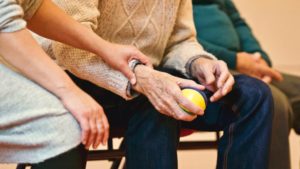Eat Whole Foods
It’s more a way of eating than a formal diet. You load up on veggies, fruits, whole grains, nuts, and low-fat dairy. You eat less fatty meats, butter, sugar, salt, and packaged foods.
Many studies have found that this diet can help you live longer and protects against heart disease, cancer, Parkinson’s, and Alzheimer’s disease. Researchers believe one way it works is by physically changing parts of your chromosomes linked to age-related diseases.
Walk
Aim for 30 minutes every day. If that’s too much, break it up into shorter strolls. Regular exercise — especially if you do it briskly enough to feel a little breathless — delivers huge health benefits. It help keep brain cells healthy by delivering more blood and oxygen. In fact, research suggests aerobic exercise may delay or improve symptoms of Alzheimer’s disease.
It also helps:
- Control your weight
- Boost your mood
- Keep bones and muscles strong
- Helps you sleep better
- Makes you less likely to get heart disease, type 2 diabetes, high blood pressure, and high cholesterol

Stay Connected
Loneliness is harmful to your health. If you feel lonely — whether you live alone or with someone, have lots of friends or none — you are more likely to get dementia or depression. Seniors who report feeling left out and isolated have more trouble with everyday tasks like bathing and climbing stairs. They also die earlier than less-lonely folks do. Researchers found that lonely people have higher levels of stress hormones that cause inflammation, or swelling, linked to arthritis and diabetes. Another study found more antibodies to certain herpes viruses in lonely people, a sign of stress in their immune system. So stay or make friends. Do volunteer work or simply help someone in need. Just connect.
This article first appeared in WEBMD.










